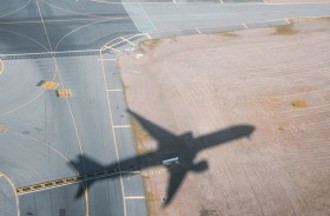
Johannesburg - The International Air Transport Association (IATA) outlined the key priorities to ensure the long-term sustainability of aviation in Southern Africa as the industry continues to suffer from the devastating effects of the COVID-19 pandemic and associated travel restrictions:
- Ensuring urgent government relief is provided to the air transport industry and that pledged funds from international and pan-African organizations reach those in need
- Accelerating the restart of aviation by replacing quarantines with testing
Relief Measures
Airline revenues from Southern African countries are forecast to decline by 60% in 2020 and the number of passengers to fall by 58%. Four airlines in the region have entered administration since the crisis began. Without urgent government relief, more carriers and their employees are at risk, as is the wider African air transport industry, which supports 7.7 million jobs on the continent.
“Air transport and the industries it supports provide millions of jobs and millions of US dollars in economic activity in Southern Africa. It is crucial that this sector gets the help it needs to survive and be able to sustain a recovery. To date, South Africa, is the only country in Southern Africa that has committed to providing direct financial support to aviation,” said Sebastian Mikosz, IATA’s Senior Vice President, Member and External Relations.
Addressing the Airlines Association of Southern Africa (AASA) 2020 virtual annual general meeting, Mikosz noted that over US$30 billion in financial support for air transport and tourism has been pledged by international finance bodies and other institutions, including the African Development Bank, African Export Import Bank, African Union and the International Monetary Fund. However, far too little of it has reached its intended recipients owing to overly complex application and creditworthiness processes, and conditions to secure finance.
“We recognize that these organizations have a responsibility to ensure this aid is well spent. Nevertheless, financial bottlenecks need to be urgently unblocked so that the money can flow quickly and reach intended participants to prevent more airline closures and job losses,” said Mikosz.
Replacing Quarantine with Testing to Restart Aviation in Southern Africa
Mikosz also urged governments and health authorities in the region to cooperate to replace quarantine restrictions—which are stifling demand for travel and inflicting further damage on air transport and tourism businesses—with COVID-19 testing to restart air travel safely.
While many of the countries in Southern Africa are re-opening their borders to regional and international air travel, in Rwanda, Seychelles and Namibia passengers are still subject to a mandatory quarantine. These measures effectively stop people from travelling. IATA is calling for the systematic testing of passengers before departure without the need for quarantine on arrival. This will enable governments to safely open borders while balancing social and economic considerations and will better support recovery efforts.
“If we cannot restart the air transport system in a coordinated, efficient and consistent fashion, we will not be able to restore the much-desired confidence that would see the return of demand across the entire travel and tourism value chain. This will result in many more livelihoods being lost and further economic decline along with hardship and poverty,” said Mikosz.
For more information, please contact:
Corporate Communications
Tel: +41 22 770 2967
Email: corpcomms@iata.org
Notes for editors:
- IATA (International Air Transport Association) represents some 290 airlines comprising 82% of global air traffic.
- You can follow us at https://twitter.com/iata for announcements, policy positions, and other useful industry information.

